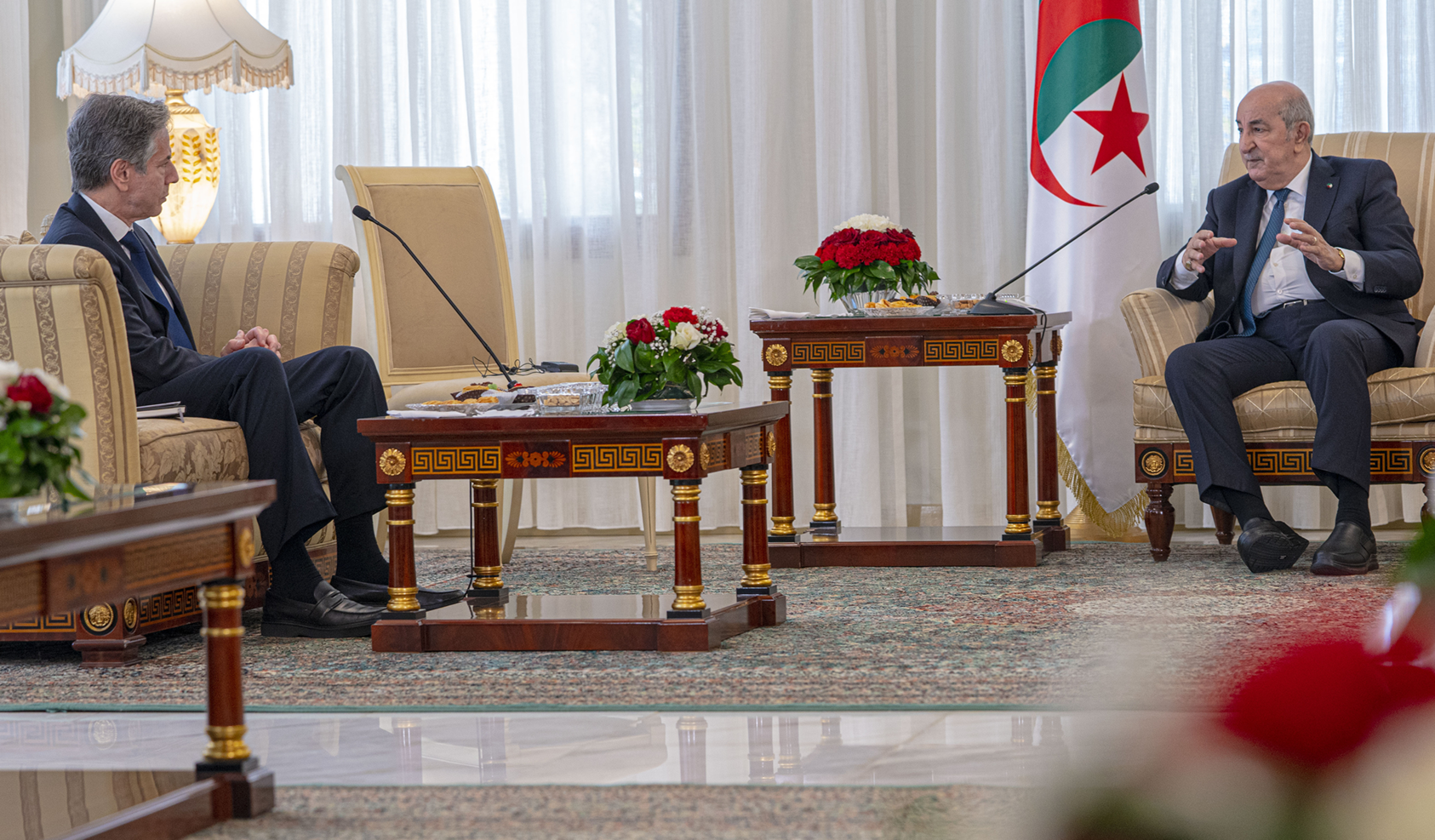Washington lauds Algeria’s pivotal role in regional conflict resolution

The United States has underscored Algeria’s essential contributions to fostering stability and resolving regional conflicts, highlighting a shared vision of cooperation and peace promotion between Algiers and Washington.
This sentiment was evident in a congratulatory telegram sent by Algeria’s President Abdelmadjid Tebboune to U.S. President Donald Trump following his presidential election victory.
Tebboune’s message emphasizes Algeria’s consistent foreign policy approach of maintaining equal-distance relations with all major powers, including Russia and China, while pursuing diverse partnerships that mutually benefit all parties involved.
President Tebboune’s correspondence reflects a mutual desire for robust ties, as underscored by a similar congratulatory message he received from the U.S. State Department following his re-election on September 7.
Both communications underscore the significance of bolstering economic and cultural partnerships, alongside regional cooperation between the two nations.
As Washington reaffirms its commitment to deepening bilateral relations during Tebboune’s second term, Algeria’s emphasis on sovereign equality and non-interference remains steadfast.
This foundation underpins efforts to enhance economic cooperation through mutually beneficial initiatives.
Algeria’s foreign policy philosophy adapts to global transformations, aspiring for a strategic and cohesive redefinition of international relations, rather than fragmented interactions.
This shift marks a significant realignment under President Tebboune, shedding decades-old perceptions of Eastern bloc bias.
Enhanced security cooperation between the U.S. and Algeria, especially following the 9/11 attacks, has opened new avenues for collaboration across multiple sectors.
Politically, Washington acknowledges Algeria’s influential regional role, particularly in mediating conflicts in the Sahel and fostering consensus-based solutions in Libya, all while opposing foreign interference.
Algeria’s recent ascension to a non-permanent seat on the UN Security Council amplifies its capacity to advocate for peace, leveraging its diplomatic experience in bridging global divides.
Economically, Algeria seeks to diversify its national economy and reduce import dependence through win-win agreements with global partners, including the United States.
Algeria’s prominence as a key partner in the Maghreb region stems from its efforts to modernize its economy.
Bilateral trade volume has surged, positioning Algeria as the U.S.’s second-largest Arab partner.
Hydrocarbons dominate these exchanges, constituting 95% of Algeria’s exports to the U.S., making Washington Algeria’s top trading partner after France.
As Algeria advances its vision for economic diversification in areas such as agriculture, ICT, and clean energy, the U.S. continues to collaborate closely, with over 100 American firms, particularly in the energy sector, actively operating in Algeria.
Reforms introduced by Algeria have garnered international attention, including praise from the U.S. for creating an investment-friendly environment.
About The Author
dailymailafric
I am an avid African news observer, and an active member of Daily Mail Africa.
I’m Passionate about staying informed on diverse topics across the continent,
I actively contribute to publishing on political, economic and cultural developments in Africa.



